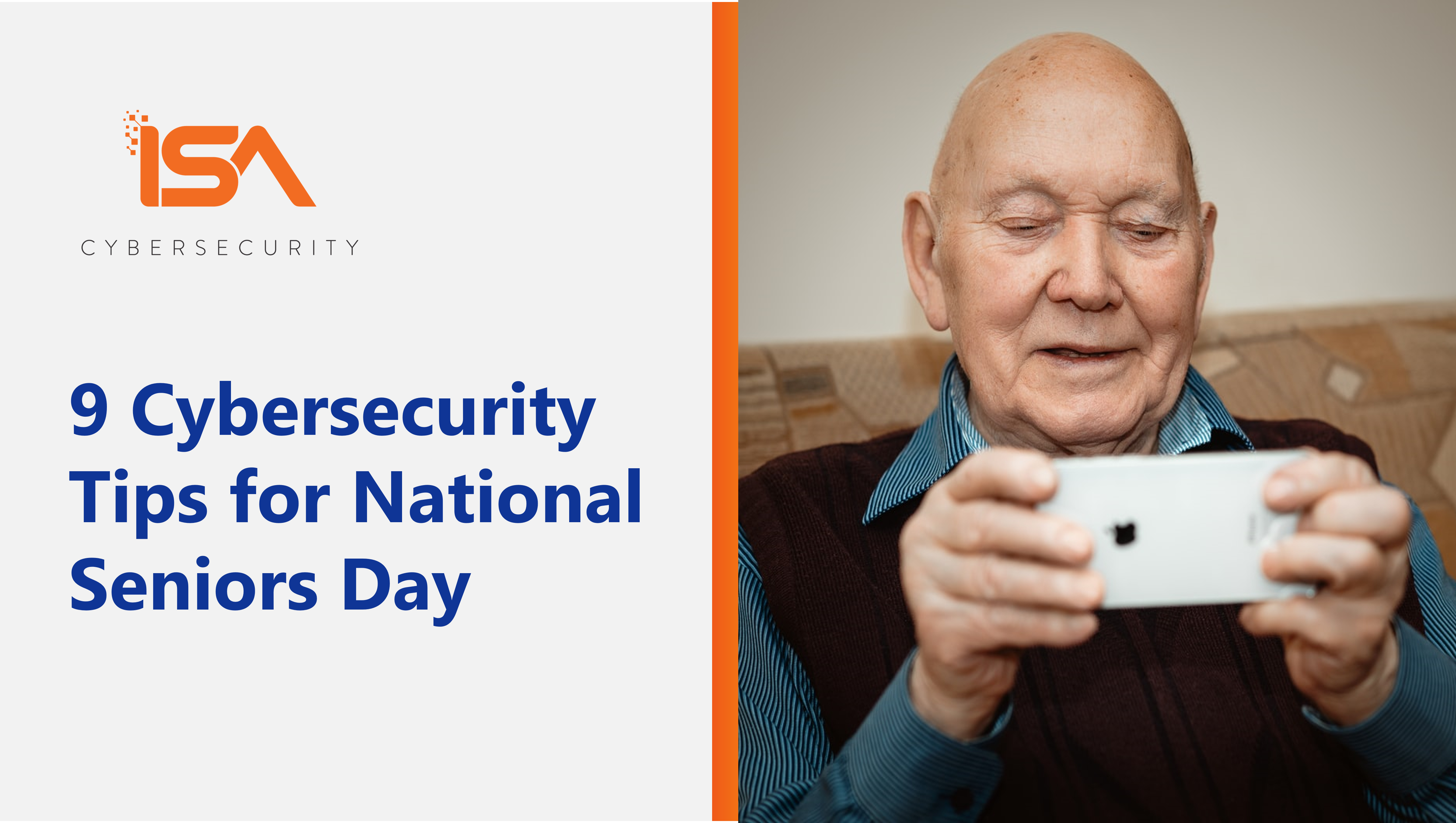Seniors are finding themselves swept into the digital world, whether they like it or not. Some embrace technology, others tolerate it, while still others find it an intimidating and incomprehensible world. Situations in which the “admin” spouse becomes ill or passes away leaves the surviving spouse struggling. While pandemic restrictions are finally being relaxed, remote gathering and virtual health care, among other communications, may be with us for longer term.
To recognize National Seniors Day, celebrated on October 1 every year, we present nine top cybersecurity tips for seniors and those who support them.
Tips for family or friends who provide support:
1) When assisting the senior, above all be patient, and avoid technical jargon or getting into too much detail. While younger generations may treat technology as second nature, some seniors find that having to use a phone or computer to pay bills or communicate with service providers can be unfamiliar and bewildering. Make sure the person always has someone they can contact to ask questions – don’t make it feel like a “bother”.
2) Particularly when providing remote support, recognize that the senior won’t necessarily pass along every error message or intuitively know if a computer or mobile phone behaviour is “expected”. First-level support can be done on the phone or by remote session, but often an in-person visit can solve a problem in minutes instead of frustrating hours virtually.
3) Discourage the reflex use of Ctrl+Alt+Del, shutting off, or unplugging a computer as a “first resort” to try to fix problems. Shutting off a system during installation or patching can inadvertently cause corruption or worsen ongoing issues. Assist with more cautious troubleshooting before hitting the power switch.
4) Remember that many seniors may have older systems or slower Wi-Fi connections, so downloads, patching, and other services may take longer to run. Again, exercise patience and understanding.
5) Passwords are a key issue with seniors, particularly with the myriad of credentials required in today’s digital world. A few key points:
+ Whenever a third party is involved, double-check the work. For example, when a service provider installs a new router or phone service, verify that passwords have been changed from the defaults.
+ Consider the use of a password manager.
+ Consider the use of two-factor authentication wherever available.
+ Discourage the re-use of passwords: if a password is compromised on one website, hackers will pivot to try to use it across other popular sites and services.

6) Offer education about phishing, smishing, and vishing scams. Seniors are more likely to be targeted and feel threatened by aggressive hacker campaigns that create a false sense of urgency (e.g., bank problems, tax arrears, COVID-19 alerts). Talk about how many victims there are of these scams, reassure them that they aren’t alone in being targeted – and aren’t alone in defending against the criminal element. The senior’s default response for unfamiliar email, text, or voice calls should be to confirm or seek assistance, not simply proceed or respond.
7) Remind seniors using Facebook or other social media not to “over-share” information like personal pictures or personal details. Ensure that their security settings are set appropriately, and checked regularly.
8) Consider the use of a VPN for any devices that might use public Wi-Fi services. While convenient, mall or coffee shop Internet access is generally not safe to use for accessing for personal or financial information.
9) Ensure that auto updates are enabled for operating systems, browsers, application software, and anti-malware defenses on all systems. This will help ensure that systems are up to date without requiring extra involvement or administration. Also ensure that security settings on those systems are configured appropriately.
There are plenty of additional resources online – a small sampling:
+ Quiz: Can You Spot an Online Scam?
+ Protect Seniors Online resource page
+ Canada’s Get Cyber Safe Initiative offers a basic cybersecurity guide for seniors as well as a specialized COVID-19 cyber defense page
+ Safety Detectives presents the Ultimate Internet Safety Guide for Seniors
+ Non-profit site Internet Safety 101 also provides references and information for seniors
+ The AARP in the United States presents a list of the top scams targeting seniors in 2021
Check out these resources and help keep the seniors in your life cyber safe.

